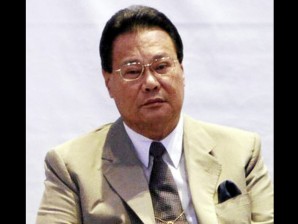The 13-10 vote last week by the Senate respecting a Supreme Court order temporarily barring the examination of the dollar deposits of Chief Justice Renato Corona revealed a deeply divided impeachment tribunal.
The voting—which came just a month into Corona’s impeachment trial—exposed this early the tectonic shift in the politics of the 23 senators, who sit in judgment of the country’s highest magistrate.
But Senators Loren Legarda, Vicente Sotto III, Gregorio Honasan, Francis Escudero, Jose “Jinggoy” Estrada and Joker Arroyo admitted to the Philippine Daily Inquirer in separate interviews that the majority vote was not “cast in stone.”
They asserted that they had anchored their decision on either the strict confidentiality afforded by law to foreign currency deposits in the country, or the constitutional duty to respect the issuances of a coequal branch of government.
However, a cursory look at the configuration of the votes proves that there is more to the majority decision than meets the eye in this battle to impeach a sitting Chief Justice over allegations he is no longer fit to remain in office.
Evidently, the senators voted along party lines, or were influenced by other considerations such as reelection bids in 2013 and other political interests exclusive to those who hold the highest levers of power.
Senators Aquilino Pimentel III, Honasan, Antonio Trillanes IV, Escudero, Legarda and Alan Peter Cayetano will seek reelection in 2013.
Senators who will “graduate”—completing their 12 years in office—by the time are Arroyo, Panfilo Lacson, Edgardo Angara, Francis Pangilinan and Manuel Villar.
As expected, allies of President Benigno Aquino III voted against the TRO: Senators Pangilinan, Franklin Drilon, Teofisto Guingona III, Sergio Osmeña III, Lacson and Trillanes.
Cayetano and his elder sister, Sen. Pia Cayetano, also voted to reject the TRO for being an incursion into the Senate’s sole power to try and decide impeachment matters.
The Cayetanos are staunch critics of then President and now Pampanga Representative Gloria Macapagal-Arroyo, who appointed Corona to the helm of the high tribunal in 2010 in what they regard as an illegal midnight appointment.
Completing the new roster of dissenters are Angara and Manuel Lapid.
The ‘rising’ sons
Lapid’s voting record had always favored whoever was sitting in Malacañang. His son, Mark Lapid, heads the Philippine Tourism Authority, recently renamed Tourism Infrastructure and Enterprise Zone Authority.
The son of Angara, Aurora Representative Juan Edgardo Angara, is expected to run for the Senate since the father is ending his second term in 2013.
Senate President Juan Ponce Enrile’s affirmative vote has attracted considerable attention because his son, Cagayan Representative Juan “Jackie” Ponce Enrile Jr., is being groomed to be a senator come 2016, when the 88-year-old Senate president ends his second term.
The 13 senators who voted to respect the TRO are a smorgasbord of different political affiliations and overlapping loyalties and alliances.
The biggest chunk came from the bloc identified with Villar, Arroyo, Legarda, Miriam Defensor-Santiago, Ferdinand Marcos Jr. and Ramon Revilla Jr.
Villar’s wife, former Las Piñas Representative Cynthia Villar, is now preparing for a Senate run since her husband is concluding his second term in the Senate by 2013.
Rough and tumble
The next bloc is the group of Sotto, Estrada, Honasan and Enrile.
In this rough and tumble of Senate politics, Ralph Recto, Escudero, Pimentel, and Estrada have turned into an enigma to many Senate observers and pundits. All four voted in favor of the TRO despite their close association with Malacañang. Recto is a member of the ruling Liberal Party; he is a Batangueño just like the Chief Justice.
Pimentel and Escudero have one thing in common: They are politically affiliated with Vice President Jejomar Binay, chairman of PDP-Laban.
Initial expectations placed Estrada alongside the anti-Corona camp on account of his father, ousted President Joseph Estrada. But Estrada surprised not a few impeachment observers when he voted with the majority.
The Binay factor has apparently thrown a monkey wrench into the impeachment trial because replacing Corona would also entail a changing of the guard in the Presidential Electoral Tribunal, which is hearing the election protest of former Senator Manuel Roxas, Mr. Aquino’s running mate.
A senator said that the Binay camp would likely support the acquittal of Corona because of the pending election protest, which now serves as a sword of Damocles hanging over the head of the popular Vice President.
“People think it will affect him (Binay) because Mar is banking on winning in his protest if Corona is replaced by a Malacañang ally,” said a senator, who asked not to be named due to the sensitivity of the issue.
